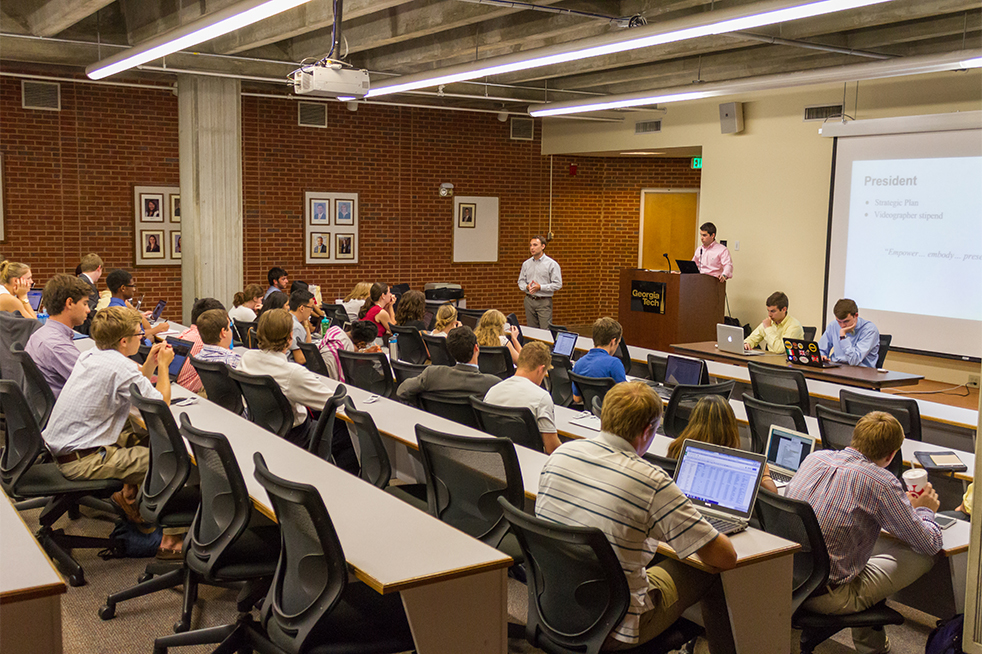Should SGA make TIer III organizations charge dues if they want a budget?
YES
by Brenda Lin
While the idea of collecting membership dues may evoke negative thoughts implying that organizations are soliciting potential members for some extra spending money, membership dues for Tier III organizations are very integral to the success of the clubs, both fiscally and morally.
Dues demonstrate consistency from an organization and commitment to utilize funding. Furthermore, membership fees ensure that SGA is only required to fund critical endeavors, and not using their own limited budget on basic operations.
Having to expend effort to actively reach out to new members in order to acquire the funding they need incentivizes groups to spend their money more wisely and conservatively.
By requiring student organizations to raise part of their budgets by themselves rather than having it fully granted means more total money to go around. This allows SGA to stretch their funding further and fund a greater number of organizations.
In the worst case, if the Tier III organizations are ever in need of more money than was previously allocated, the clubs can write a bill to request more funding.
It should be noted, however, that while dues are an integral part of sustaining a club, the increased minimum for membership fees is outrageous. The new minimum of $20 per semester for Tier III noncompetitive clubs brings yearly fees to $40, at the least.
For many of the smaller clubs, particularly organizations which may not have a professional return on investment, having such high dues deters students from participating.
Additionally, it is hard to make the case for students to join an organization as a member when it has become cheaper to pay for items or events on an individual basis than to pay the membership dues, ultimately defeating the stated purpose of said dues.
In order to successfully sustain Tier III groups, it is prudent for JFC to be aware that the seesaw that is the balancing of club budgets is about to tip into unsustainable territory.
NO
by Brittany Miles
According to JFC Policy, all Tier III organizations who request a budget must charge a semesterly membership fee at or above the mandated limit: $50 for competitive organizations, and $20 for all others. While this seems like a good idea in theory — charging dues ensures that an organization maintains a committed and consistent member base — it is absurd to require these organizations to charge dues just to get a budget as it limits student accessibility to these organizations on campus.
Take for example an eager freshman entering college and hoping to get involved. They have a diverse set of interests including a Club Soccer, the Turkish Student association, and Engineering World Health. At a minimum, that student would be paying $180 a year just to be considered a member of these organizations.
While these charges may seem minor, for students who are paying their own way, this fee is steep. It can drive students who truly have a passion for something away from an organization because they cannot afford the dues.
In some cases, organizations will attempt to limit this by providing degrees of membership where non-members can attend events on a “pay-as-you-go” basis, but this still does not eliminate the problem. Instead it stratifies the members, serving to split the club on a “have” versus “have not” basis. Driving a wedge between groups of people is the opposite of what these organizations are supposed to do.
Some may respond by claiming that organizations who choose not to charge dues, and therefore do not receive a budget, can still come to SGA with bills requesting funding. However, SGA has admitted themselves that budgets serve to reward organizations who consistently request and effectively spend funding. Why then is there a buy in to this privilege?
Ultimately, Tier III organizations, at their core, are organizations for the students by the students. Unfortunately, due to the ever increasing financial pressures of membership, they may soon become an impossibility for many on Tech’s campus.
